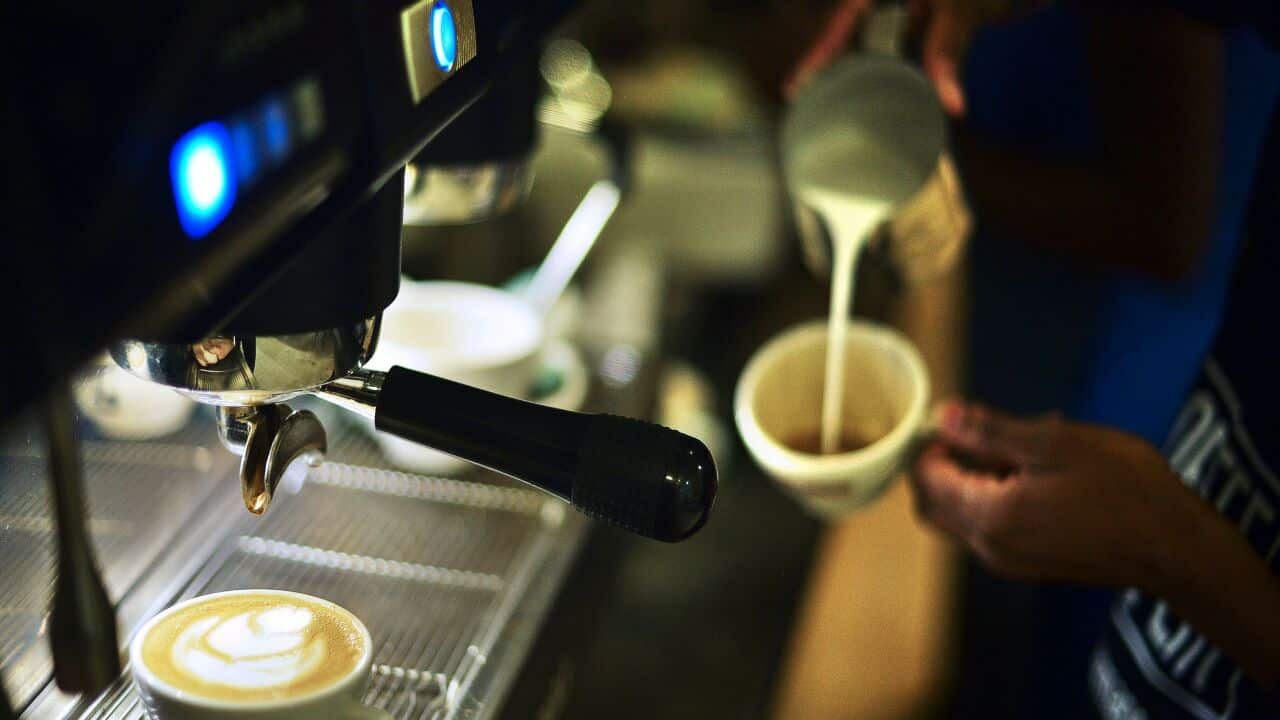A cup of joe is part of Australian daily life. But while it's now a regular occurrence to fork out $6 for your flat white, it might be about to get even worse.
This is because arabica beans have surged to their highest price in 27 years, as supply issues mount among producing nations, leaving suppliers, cafes and consumers to feel the pinch.
Arabica coffee is the most widely consumed type of coffee in Australia and the world, making up 60 per cent of the world's coffee production.
Robusta coffee beans account for the rest of commercial coffee production. The main differences between arabica and robusta are their flavour, caffeine content and where they are grown.
Roy Greenfield is the director of coffee at Zest Specialty Coffee Roasters, a wholesale supplier helping source coffee for cafes and restaurants operating in the nation's self-proclaimed coffee capital, Melbourne.
He's worried about the cost and the quality of beans in the future.
"The reason why the coffee price is so high is because of a drought and a reduction in coffee stocks in Brazil and Vietnam," Greenfield said.
"So the bigger thing that keeps me awake at night is whether I can actually still get the same quality of coffee from those countries."
Prices for the arabica bean climbed to US$3.03 a pound (454g), passing $3 for the first time since 2011. Prices have soared by more than 60 per cent this year.
The world's biggest coffee producer, Nestlé, says we can expect prices to keep rising.
"Arabica prices are rising and are forecast to rise further in 2025 as high temperatures and limited rainfall are compromising the projected harvest in Brazil," Martin Brown, beverages general manager at Nestlé Oceania, said.
The key global coffee producers around the world are Brazil (36 per cent), Vietnam (11 per cent) and Colombia (8 per cent).
But as cost pressures press upwards, it's a balancing act that's testing Johnny Sandish's business in Melbourne's bustling Degraves St, Xpressomondo.
"Well, we have no choice now. We're losing money. But we cannot put the price any higher otherwise we lose all the customers," Sandish said.
Analysts predict arabica prices will need to keep rising in the incoming months to ensure global supply is maintained.

Arabica coffee prices have hit a 27-year high. Source: SBS News
"We say we are the coffee capital of the world. Now's the time to actually invest in that — and that's not just us as a roaster or the cafe, but that's the consumer."
"If every cafe in Melbourne put their price up by 50 cents tomorrow morning, that would create sustainability for the cafe owner, the roasters, all the way through to the farmers."
In a statement to SBS News, Nestlé said: "We are continuing to work to find ways to minimise passing on these costs, but we will not compromise on the quality and taste of our products, or the investment we make in our farmers and coffee growing communities."
"We are also investing to help secure a long-term coffee future, including accelerating our transition to regenerative agriculture to help build greater climate resilient coffee crops, improve yields and further support our farmers."
How much coffee does Australia drink?
Coffee is part of the DNA in Australia, with 75 per cent of us enjoying at least one cuppa each day, according to figures from McCrindle Research.
More than one in four Australians can't survive the day without their coffee, while more than four in five buy coffee from cafes each week.
The shortages are expected to have worldwide impacts, especially among the world's biggest coffee drinkers.
Australia is the 10th largest importer of coffee in the world, importing about 132,000 tonnes of coffee in 2022/23, according to research from ANZ.
When it comes to consumption per capita, the US Department of Agriculture ranks Australia eleventh in the world, consuming the equivalent of 4.5kg each of ground coffee per year.











